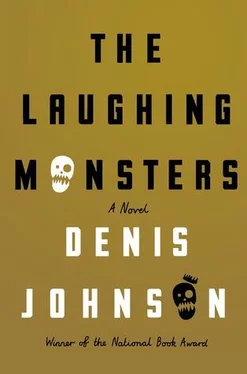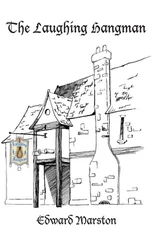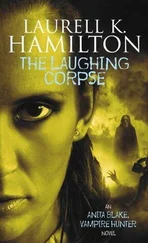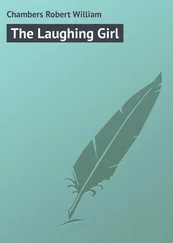Michael laughed with such vigor that Davidia came in and looked at his face and said, “Are you all right?”
“You should have seen Fred’s expression!” He meant the bartender. “Like the aliens were landing in his pool! Seriously,” he said, “he must have dragged you from the pool himself. He was wet to the waist. His shoes are ruined.”
“I’ll give him some money,” I said.
The rain had stopped, and Davidia was correct — the creatures had resumed, the bugs that chimed like porcelain, frogs that belched like drunkards, and now more frogs, snorting like pigs. A suffocating sleep fell over my face. I came under its shadow convinced that Spaulding had poisoned me.
* * *
The next morning I asked for Spaulding, and Emmanuel, the manager, said he’d settled his account and left in a taxi for Arua’s small airfield. Flying where? No commercial planes this morning, according to Emmanuel. Only the UN plane to Yei, in South Sudan.
I continued on to the restaurant for my appointment with Michael Adriko. I’d promised to meet him there and tell him my decision.
There he was, near the blaring television, doing nothing, not even watching it. “Well?”
“I haven’t decided.”
“Take your time. Up to ten more minutes. Don’t sit down. Walk with me,” he said, already moving, “I’ve got to see about the gas.”
“Is it a long drive?”
“Just into town, over by the market, but you know the rule — half a tank is empty. You remember the rule.”
I remembered.
When we came to the parking lot, he paused. “As of right now, the process is halted. You see how easy it is?”
“I get uncomfortable when you stop in the middle of walking to make a point.”
“At any moment in the procedure, we can say ‘enough.’”
“I understood the point.”
“Then understand this one: Do you really want to go back to that boring existence?”
“Never.”
This much was true, the only true thing between us.
By now we’d reached his borrowed Land Cruiser. We both got in. The engine caught quickly, first try.
The guard held the gate wide open for us.
It was a years-old model, much like the blue-and-white Land Cruisers we’d often borrowed from the UN in Jalalabad, sometimes Kabul. Too much like. It even smelled the same inside, like spilt gas and dirty clothes.
“Are you ready?”
“No. For this? No.”
* * *
We stopped at a filling station where a woman topped off our tank, and we waited.
“Near the market, you said?”
“That’s all I know. They’ll call me with the meeting place. What time is it? — eleven-thirty-three,” he informed himself. “They’ll call me in the next half hour.” We sat side by side on the vehicle’s rear bumper, Michael studiously smoking, blowing white puffs upward through the brown fumes and the red dust, under the yellow Shell insignia. After the call, he pocketed his phone and threw down his cigarette and stomped it like an insect. “We’re off.”
We left the SUV in front of a place called Gracious Good Hotel, under care of the taxi drivers loitering there. Michael, a bright red zippered daypack slung over his arm, guided me across the street toward the market by way of a narrow alley with light at the far end, its crevices roiling with crippled beggars — many were blind, and as for the others, they seemed to look through your own eyes and down your throat. Ahead of me Michael was a bent silhouette, handing over a crumpled bill. “My name is Michael,” I heard him say, “pray for me.” An old woman caught the money between her leprous paws and turned her sightless eyes up toward him and her lips moved below the noseless hole in her face, praying, “Michael, Michael,” not for him, but rather to him, to the deity Michael … And crash, back into the daylight — it never happened …
I caught up with Michael at a clothier’s stall. He was looking at a coat of fake black leather too hot for this region. He set his mirrors on his scalp, gripped the sleeve, touched the fabric with one finger. I didn’t know if he was trying to buy something or just delaying, looking out for a tail.
The latter. When we left the market square he led the way into a dry goods store across the street. Inside we made our way directly down the center aisle to the back of the store, where a woman napped in a collapsible chair, and we asked her for another entrance. She pointed through a curtain, we passed through it and out into a side lane, then up to the left — and I recognized the street, and saw our Land Cruiser parked just a block away.
He handed me his daypack. “Take charge of the little morsel.”
“Of course.” Lethargy and nausea overtook me. It felt like it weighed fifty pounds.
Michael said, “I go first. Wait until you see me come out again, then you’ll come and join me. It may take a few minutes.”
“What’s going to happen in there?”
“Before I bring you on the stage, I’ll say I want to see the cash. They’ll say no, but this way I get to review the environment.”
“And then what?”
“It’s two South African guys — Kruger is one, you saw him. You’ll verify everything I tell them, right? Then I’ll go with them. You can stay there — it’s that café there, you see it? I’ll go with them, we’ll sit in their car or something with the sample and their equipment, and we’ll make the exchange. And I’ll come back in and collect you, and then back to Nile Palace.”
“Where’s their equipment, do you know?”
“Ah — you’re thinking smart now. If it’s not in their car or somewhere we can walk, I’ll make them go get it. I’m not driving off with them.”
On this sunny street, where earth-moving machines worked over piles of red dirt, improving the surface, and generators clattered in front of the shops and schoolchildren in green-and-white uniforms walked home for lunch, all this sounded reasonable.
“Stop breathing so fast,” Michael said.
“I’m fucking nervous.”
“Good. It helps you look the part. Just don’t faint.” He left me standing there and in order to keep my mind off itself I studied the nearby billboard exhorting the use of condoms and followed the progress of a small car over the ruts and small boulders from one end of the block to the other, its horn playing the first six notes of the “Happy Birthday” song. Looking around for something else, I spied Michael already back outside, standing in his own spotlight in his aviator sun shades as if in support of the warning stenciled beside him: DO NOT URINE ON THIS WALL 30,000 FINE. And he wore the fake black leather duster from the market. I was nervous to the point that I hadn’t even seen him make the purchase.
Michael must have sensed it. He took my arm and kept me going as we went inside. I was living one of my persistent nightmares: I step onto the stage, it’s time to speak, I don’t know my lines. In this particular bad dream the stage was a four-by-four-meter dirt space enclosed in ironwork and roofed with tin, with a sign on the left saying SIMBA DISCO / PHONE CHARGE ACCUMULATOR AVAILABLE and on the right a Bell Lager clock with one hand, counting only the minutes, and wooden tables and benches. We sat down across from the South Africans.
They were a half-and-half team, like Michael and me. The black one, I assumed, was Zulu, and could have been one of Kruger’s math pupils, but he looked in his thirties too. He wore his sunglasses on the back of his shaved skull. In most other respects he seemed to be trying to resemble an American rapper: a hooded sweater, baggy hip-hop shorts I hadn’t seen anyone wearing in Uganda. A word about this Zulu’s shoes. They were purple joggers, elaborately designed and, by the look of them, enclosing enormous feet. There’s no explaining why I should have been so penetratingly aware, at this moment, of anybody’s fashion choices. Kruger suggested a drink, and I certainly concurred, and now came the moment when I discovered the East African quick-shot — a square plastic envelope that would fit in your palm and holding one hundred milliliters of, in this case, Rider Vodka — Sign of Success. You chew off a corner and slurp. I bought several, several. The floor was tiled with discarded packets.
Читать дальше












